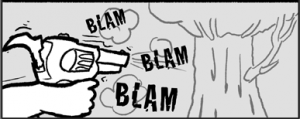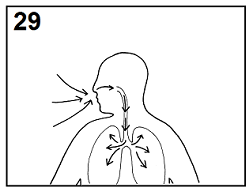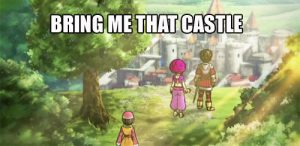Rally ’round the white flag
This is a repost promoting content originally published elsewhere. See more things Dan's reposted.
This is a repost promoting content originally published elsewhere. See more things Dan's reposted.
This link was originally posted to /r/thewalkingdead. See more things from Dan's Reddit account.
The original link was: https://i.imgur.com/FFP01v3.jpg
This is a repost promoting content originally published elsewhere. See more things Dan's reposted.
This is a repost promoting content originally published elsewhere. See more things Dan's reposted.
This link was originally posted to /r/asmr. See more things from Dan's Reddit account.
The original link was: http://www.ohjoysextoy.com/comics/2014-10-21-asmr.jpg
This link was originally posted to /r/bisexual. See more things from Dan's Reddit account.
The original link was: http://empathizethis.com/stories/prejudice-pride/
This is a repost promoting content originally published elsewhere. See more things Dan's reposted.
This is a repost promoting content originally published elsewhere. See more things Dan's reposted.
This is a repost promoting content originally published elsewhere. See more things Dan's reposted.
This is a repost promoting content originally published elsewhere. See more things Dan's reposted.
This is a repost promoting content originally published elsewhere. See more things Dan's reposted.
Oh man. Sorry….and I’m done ( for now ). Should be another comic up next week.
This is a repost promoting content originally published elsewhere. See more things Dan's reposted.
Like puzzles? Like webcomics? Then here are two things you ought to see:
The first is the short-lived webcomic Crimson Herring. Personally, I’m hoping that it’ll come back to life, because it really had lots of potential. In each episode, a “crime drama” plays out, and you – the reader – are left with just enough clues to solve the case. Sometimes you have to really pay attention to the pictures, other times to the words, and it’s really got a good idea going for it.

Even if it turns out to be completely dead, now, you can go back and read the archives: start here! And if you like it, leave a comment and let the author know; see if we can get it brought back again.
A recent Abstruse Goose, called “A Simple Puzzle 4”, had me thinking for a few days, and then the answer suddenly came to me.

The idea behind the comic is really quite clever; but once you’ve worked out the key, putting the panels into the right order isn’t difficult at all. Give it a go!
Commissioned, a webcomic I’ve been reading for many years now, recently made a couple of observations on the nature of “fetch quests” in contemporary computer role-playing games. And naturally – because my brain works that way – I ended up taking this thought way beyond its natural conclusion.
Today’s children are presumably being saturated with “fetch quests” in RPGs all across the spectrum from fantasy Skyrim-a-likes over to modern-day Grand Theft Auto clones and science fiction Mass Effect-style video games. And the little devil on my left shoulder asks me how this can be manipulated for fun and profit.

The traditional “fetch quest” goes as follows: I’ll give you what you need (the sword that can kill the monster, the job that you need to impress your gang, the name of the star that the invasion fleet are orbiting, or whatever), in exchange for you doing a delivery for me. Either I want you to take something somewhere, or I want you to pick something up, or – in the most overused and thankfully falling out of fashion example – I want you to bring me X number of Y object… 9 shards of triforce, 5 orc skulls, $10,000, or whatever. Needless to say, about 50% of the time there’ll be some kind of challenge along the way (you need to steal the item from a locked safe, you’ll be offered a bribe to “lose” the item, or perhaps you’ll just be mobbed by ninja robots as you ride along on your hypercycle), which is probably for the best because it’s the only thing that adds fun to role-playing a postman. I wonder if being attacked by mage princes is something that real-life couriers dream about?
This really doesn’t tally with normality. When you want something in the real world, you pay for it, or you don’t get it. But somehow in computer RPGs – even ones which allegedly try to model the real world – you’ll find yourself acting as an over-armed deliveryman every ten to fifteen minutes. And who wants to be a Level 38 Dark Elf Florist and Dog Walker?

So perhaps… just perhaps… this will begin to shape the future of our reality. If the children of today start to see the “fetch quest” as a perfectly normal way to introduce yourself to somebody, then maybe someday it will be socially acceptable.
I’m going to try it. The next time that somebody significantly younger than me looks impatient in the queue for the self-service checkouts at Tesco, I’m going to offer to let them go in front of me… but only if they can bring me a tin of sweetcorn! “I can’t go myself, you see,” I’ll say, “Because I need to hold my place in the queue!” A tin of sweetcorn may not be as impressive-sounding as, say, the Staff of Fire Elemental Control, but it gets the job done. And it’s one of your five-a-day, too.
Or when somebody asks me for help fixing their broken website, I’ll say “Okay, I’ll help; but you have to do something for me. Bring me the bodies of five doughnuts, to prove yourself worthy of my assistance.”
It’s going to be a big thing, I promise.
This link was originally posted to /r/bisexual. See more things from Dan's Reddit account.
The original link was: http://www.smbc-comics.com/comics/20120111.gif
